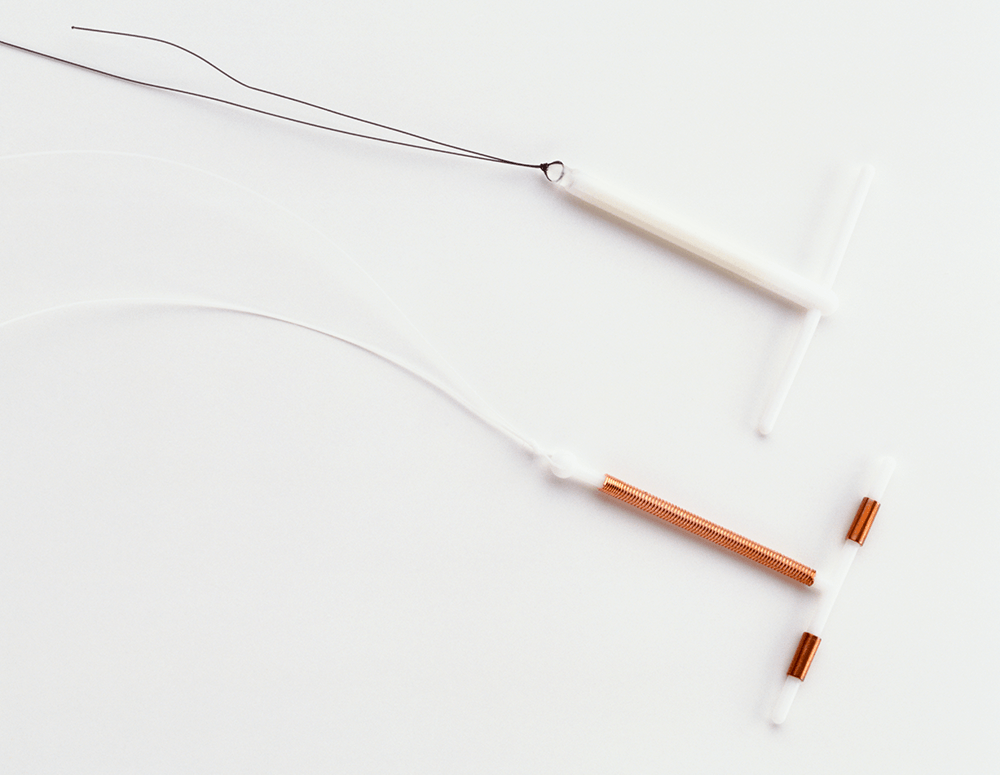When you think about the potential causes of acne in menstruating individuals, what specific triggers come to mind? Cycle phase? Stress? Diet? Hormonal changes? While all of these factors can increase your likelihood of breaking out, there might be a more hidden component causing your pesky acne flare-ups. The overlap between hormonal birth control and acne is nothing new, but the interest in the specific link between IUD devices and acne is often overlooked. So, is your IUD the reason you’re breaking out? We consulted the experts to find out.
Featured Experts
- Joel Schlessinger, MD, and Daniel Schlessinger, MD, are dermatologists in Omaha, NE
- Anna Chacon, MD, is a dermatologist in Coral Gables, FL
- Heidi Waldorf, MD, is a dermatologist in New York
- Marisa Garshick, MD, is a dermatologist in New York
Can IUDs cause acne?
The question may be overarching, and the answer isn’t as black and white as one might hope. But all of our dermatologists agree that there is a risk of acne associated with any hormone-based treatment. “Basically, anything that controls hormones can affect acne in some manner, and IUDs are no exception,” says Omaha, NE dermatologist Joel Schlessinger, MD. “The key to managing your choice of oral or implanted contraceptive devices is to work with your OBGYN to pick one that is convenient and effective for you, but if acne is a concern, then you may want to consider oral contraceptives that contain both estrogen and some form of progestin rather than just progesterone.” New York dermatologist Marisa Garshick, MD, agrees, noting that “Hormonal IUDs contain progestin, which acts like an androgen, the type of hormone that can contribute to acne.”
“Progestin can act similarly to androgens, which can increase oil production in the skin and potentially lead to breakouts,” Coral Gables, FL dermatologist Anna Chacon, MD, adds, highlighting the fact that specific progestin-based IUDs like Kyleena and Mirena have been known to increase or worsen acne.
Do both hormonal and copper IUDs cause acne?
In the world of intrauterine devices (IUDs), copper IUDs and hormonal IUDs are the two main types, and each behaves significantly differently in the body. While hormonal IUDs use hormones like progestin and estrogen to prevent pregnancy, copper IUDs act as a physical, hormone-free pregnancy blocker, and thus don’t increase the risk of developing or worsening acne. “Acne can only be triggered by hormonal IUDs because the hormone is the trigger,” explains New York dermatologist Heidi Waldorf, MD. “Copper IUDs work by physically blocking the sperm from getting to the egg, while hormonal IUDs release progesterone, which affects the lining of the cervix to block sperm from reaching the uterus and can interfere with egg release from the ovaries, so there is no egg to fertilize. It’s that progesterone which can trigger acne in susceptible women.”
Omaha, NE dermatologist Daniel Schlessinger, MD, adds that “Hormonal IUDs often cause or significantly worsen acne, whereas copper IUDs do not, but in my experience, not as many women choose to have copper IUDs in the first place because they can be associated with more menstrual bleeding and pain.”
What is the best way to treat acne caused by IUDs?
Knowing the cause of your acne is one of the best ways to treat the condition and prevent it from worsening, so treating hormonal acne caused by an IUD requires specific treatment. But, as Dr. Joel Schlessinger explains, sometimes having an IUD can help treat your acne, too. “For example, patients on Accutane are generally going to need to be on an effective form of birth control, which an IUD certainly provides. Accutane is tremendously effective and after a course of treatment, even hormonal acne is diminished greatly, often to the point of not being an issue for more than 18 to 24 months after a course of treatment or longer.”
In terms of the best treatments for hormonal acne, our derms agree that the prescription acne medication Spironolactone is a great first option. “Spironolactone was first used as a blood pressure medication, but it has hormonal effects that can often help acne like the ones that are provoked by IUDs,” says Dr. Joel Schlessinger. Dr. Waldorf adds that if an over-the-counter regimen “including salicylic acid and a retinoid like adapalene” isn’t working, it’s best to see a dermatologist. While standard therapies are helpful in treating acne caused by IUDs, for hormonal acne specifically, “the addition of an antiandrogen orally (Spironolactone) or topically (clascoterone cream, brand name Winlevi) is particularly effective,” Dr Waldorf says.
